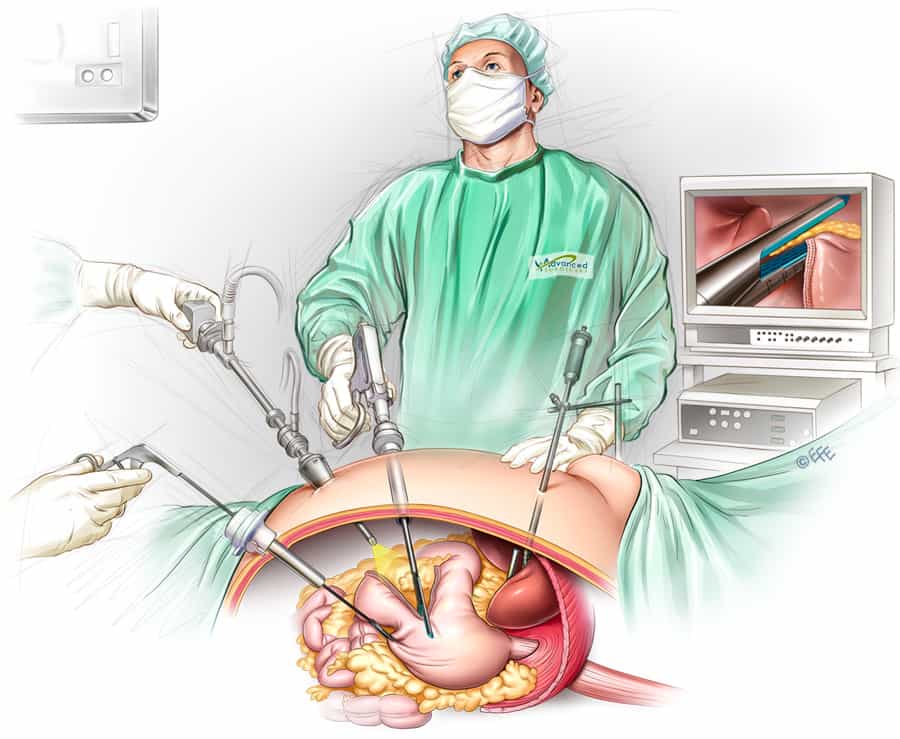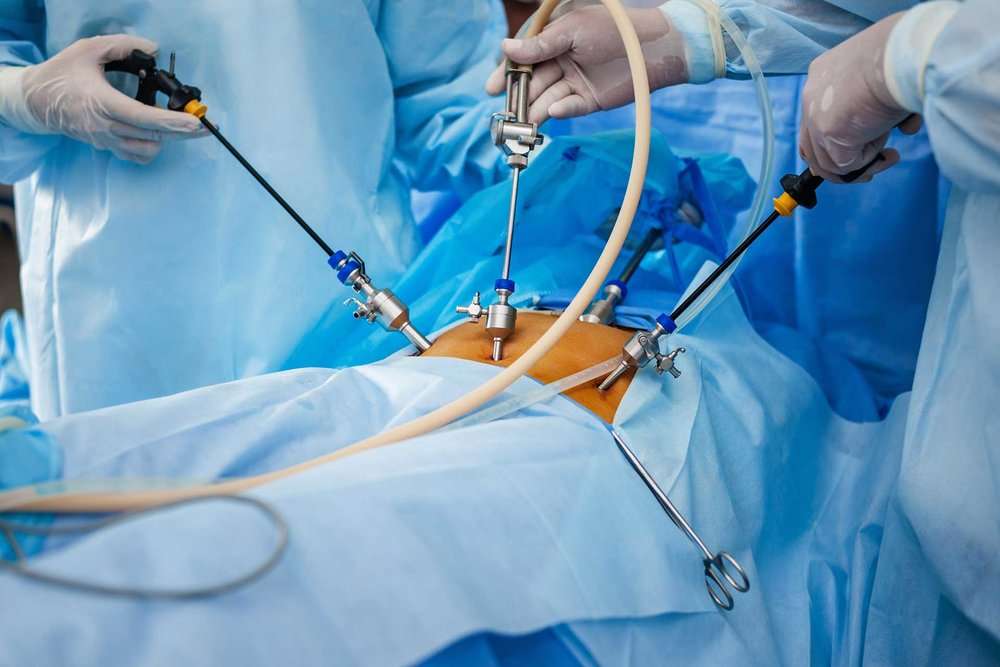Understanding Gastric Sleeve Surgery
Surgical Purpose
Gastric sleeve surgery, also known as the sleeve gastrectomy, aims to aid in significant weight loss. This procedure, a revision surgery for weight loss, involves removing a portion of the stomach, reducing its size by about 80%, impacting the weight loss surgery cost as treatment and altering the overall loss surgery costs. The result is a sleeve or tube-like structure.
This drastic reduction limits food intake and decreases hunger hormone levels. Patients feel full sooner and eat less, leading to weight loss, a plan often discussed with a doctor when considering revision surgery for those in need. It’s a permanent change that requires a lifelong commitment to a healthy lifestyle, often necessitated by weight loss surgery and potentially revision surgery, which need significant pay.
Process Overview
The surgery, which can be paid for with CareCredit, is performed under general anesthesia, typically through laparoscopy, and may require a revision. This minimally invasive approach uses small incisions, resulting in less pain and quicker recovery times than traditional surgery.
Surgeons remove part of the stomach and join the remaining portions together to form a “sleeve” in weight loss surgery or revision surgery. This process takes about one to two hours. After surgery, the stomach can hold only a fraction of what it could before, significantly reducing calorie intake.
Eligibility Criteria
Not everyone is a candidate for gastric sleeve surgery. The eligibility criteria for weight loss surgery are strict to ensure patient safety and the effectiveness of the procedure, including CareCredit options.
Candidates for weight loss surgery generally have a body mass index (BMI) of 40 or higher (severe obesity). Those with a BMI between 35-39 may qualify for weight loss surgery if they have obesity-related health conditions like type 2 diabetes or high blood pressure.
Patients must also be willing to undergo thorough medical evaluations and commit to permanent lifestyle changes after weight loss surgery. These include dietary adjustments, regular exercise, frequent medical follow-ups, and weight loss surgery.
Gastric Sleeve Costs Uninsured
Cost Range
The average cost of gastric sleeve surgery without insurance in the U.S. varies significantly. Patients can expect to pay between $15,000 and $25,000. This wide range reflects differences in hospital fees, surgeon’s expertise, and geographical location.
Many overlook the hidden costs associated with this procedure. Pre-operative tests are necessary to ensure a patient’s readiness for surgery. These can add hundreds to thousands of dollars to the final bill. Post-surgery, follow-up care is crucial for monitoring recovery and nutrition. This phase often involves additional expenses not covered by the initial surgery cost.
Additional Costs
Pre-operative evaluations include blood tests, EKGs, and consultations with specialists. These assessments are essential but costly. They ensure that patients are suitable candidates for the procedure.
After surgery, patients must adapt to a new lifestyle and diet. Nutritional counseling and support groups become part of their routine. These services, while beneficial for long-term success, add to the overall financial burden.

State Variations
Costs vary widely across states due to differences in living expenses and demand for such surgeries. For example:
-
In Texas, prices might be slightly lower than the national average due to a high number of clinics offering the service.
-
California, known for its high cost of living, sees prices on the upper end of the spectrum.
-
States like Mississippi or Alabama might offer more affordable options but require thorough research into the quality of care provided.
This disparity emphasizes the importance of researching and comparing options before making a decision.
Price Factors for Surgery
Geographic Location
Geographical differences play a significant role in determining the average cost of gastric sleeve surgery. In areas with a high cost of living, medical costs tend to be higher. This includes both the surgeon’s fees and facility charges. For example, undergoing surgery in urban centers or regions known for specialized medical care can significantly increase out-of-pocket costs.
In contrast, locations with lower living expenses may offer more affordable options. However, patients should consider travel and accommodation expenses if they opt for surgery far from home.
Surgeon Expertise
The experience and reputation of a surgeon are crucial factors affecting gastric sleeve surgery costs. Highly qualified surgeons who have performed numerous successful surgeries often charge more. Their expertise can lead to better outcomes and fewer complications, justifying the higher price.
Facility fees also contribute to the overall cost. Operations conducted in state-of-the-art hospitals or specialized surgical centers may have higher prices due to the advanced technology and comprehensive care they provide.
Facility Fees
Surgery location impacts costs too. High-quality facilities equipped with the latest technology and offering exceptional patient care will likely have higher facility fees. These costs cover everything from the use of surgical rooms to post-operative care provisions.
Patients benefit from considering these fees when budgeting for their procedure. A well-equipped facility can enhance safety and comfort, contributing positively to the surgery outcome.
Quality vs. Price
Choosing a surgeon based on low prices alone can be risky. While it’s understandable that patients want to minimize expenses, especially without insurance coverage, this approach may compromise quality and safety. Surgeons offering significantly lower prices might cut corners or lack experience, potentially leading to unsatisfactory results or health complications.
It’s essential to research thoroughly and weigh the benefits of investing in a reputable surgeon against the risks associated with cheaper alternatives.
Financing Your Surgery
Medical Loans
Medical loans can offer a lifeline for paying for surgical procedures without insurance. Patients can apply through banks or online lenders. Interest rates vary based on credit scores.
Loans specifically designed for healthcare, like Prosper Healthcare Lending, provide options for those needing gastric sleeve surgery. They assess medical necessity and patient eligibility differently from traditional loans.
Payment Plans
Surgeons often work with patients to develop payment plans. This option allows individuals to pay for their procedure over time directly to the physician’s office.
e clinics partner with financing companies to offer structured payment solutions. These plans might require a down payment but can spread the cost over several months or years.
Health Savings Account
Using a health savings account (HSA) is another strategy. Funds from HSAs are pre-tax, reducing the overall financial burden.
Patients must ensure their HSA covers elective surgical procedures. Not all accounts allow for such use, so it’s crucial to check beforehand.
Credit Options
Credit cards and medical credit cards present additional ways to finance surgery. CareCredit is one popular choice in the medical community, offering special financing terms for health-related expenses.
However, high interest rates on unpaid balances make this option costly in the long run. Patients should consider this before charging surgery costs to any credit card.
Financial Counseling
Seeking advice from a financial counselor can provide clarity on managing surgery expenses. Counselors can help explore all available financing options and advise on the best path forward based on individual financial situations.
They may also know of assistance programs or grants available for those undergoing major surgical procedures like gastric sleeve surgery.
Pros and Cons
-
Pros: Financing options make surgery accessible without upfront full payment.
-
Cons: Interest rates and loan terms can add significant amounts to the original cost.
Risks and Benefits
Potential Risks
Gastric sleeve surgery, like any major operation, comes with its set of risks. Patients might face complications such as infections, bleeding, or adverse reactions to anesthesia. There’s also a possibility of longer-term issues, including nutrient deficiencies or gastric leaks. These health issues can sometimes lead to additional surgeries and increase the overall costs.
Insurance companies often have strict criteria for coverage that includes pre-surgery weight loss and health guidelines. Without insurance, patients must be particularly mindful of these risks. They are solely responsible for managing any complications that arise post-surgery, which could significantly increase their out-of-pocket expenses.
Long-term Benefits
Despite the potential for complications, the benefits of gastric sleeve surgery can be life-changing. Many patients experience significant weight loss within the first year after surgery. This drastic reduction in weight often leads to improvement in various obesity-related conditions such as diabetes, high blood pressure, and sleep apnea.
Moreover, the long-term health improvements associated with substantial weight loss can dramatically enhance quality of life and reduce healthcare costs over time. For those struggling with severe obesity, the surgery offers a path to reclaim control over their health when traditional methods have failed.
Weighing Risks vs. Benefits
Deciding on gastric sleeve surgery without insurance requires careful consideration of the financial and medical implications. While financing options can help manage the upfront costs, understanding the full scope of potential risks is crucial. It’s essential for patients to evaluate whether the long-term health benefits outweigh these risks.
Consultations with healthcare providers can offer valuable insights into what to expect from the surgery and post-operative care requirements. Exploring patient testimonials and success stories may provide a clearer picture of what life looks like after undergoing such a transformative procedure.
Non-Surgical Weight Loss
Lifestyle Changes
Lifestyle modifications stand as a cornerstone in managing obesity. They encompass diet adjustments, regular physical activity, and behavior changes. Unlike weight loss surgery, these interventions do not require anesthesia or a hospital stay, making them more accessible.
They focus on creating a calorie deficit to promote weight loss. This involves eating nutrient-dense foods that nourish the body while limiting calories. Regular exercise enhances this effect by increasing calorie burn. Together, they form a fundamental approach to sustainable weight management.
Medical Programs
Medical weight loss programs offer structured support for those struggling with obesity. These programs typically involve healthcare professionals, including dietitians and fitness experts, who tailor plans to individual needs.
Participants receive guidance on healthy eating and physical activity. Some may also be prescribed medication to assist with weight loss. These programs prioritize safety and effectiveness, aiming for gradual, steady weight loss over time.
ESG Treatment
Endoscopic Sleeve Gastroplasty (ESG) emerges as a minimally invasive alternative to traditional surgery. It reduces stomach size through internal sutures applied via an endoscope. This procedure significantly lowers risks compared to surgical options since it’s less invasive and doesn’t require cuts or permanent alterations.
ESG can lead to substantial weight loss by limiting food intake and promoting early satiety. However, its success heavily depends on the patient’s commitment to lifestyle changes post-procedure.
Orbera Balloon
The Orbera balloon is another non-surgical treatment that temporarily occupies space in the stomach. Inserted through the mouth under mild sedation, it’s filled with saline to create a feeling of fullness.
This method is designed for short-term use, usually six months, encouraging patients to adopt healthier habits in the interim. While it offers an immediate solution for reducing food intake, its effectiveness wanes upon removal unless accompanied by significant lifestyle modifications.
Cost Comparison
Non-surgical methods often present lower upfront costs than gastric sleeve surgery due to the absence of surgical fees and anesthesia costs. However, considering long-term effectiveness and potential need for additional interventions, expenses can accumulate.
Patients should weigh these factors against their health goals and financial situation. Insurance coverage varies widely between surgical and non-surgical treatments, influencing decision-making for many.
Recovery and Diet Post-Surgery
Recovery Timeline
Recovery from gastric sleeve surgery involves several stages. Initially, patients experience a hospital stay of about 2-3 days. They then transition through various dietary phases over the next four weeks.
The first week post-surgery is crucial. Patients consume clear liquids only, avoiding any solid foods to allow the stomach to heal. This period focuses on hydration and resting. Pain and discomfort may be present, but they gradually decrease.
By the second and third weeks, individuals start incorporating soft foods like pureed fruits and vegetables into their diet. Protein-rich liquids are also introduced to support healing. It’s important to eat slowly and chew food thoroughly to avoid complications.
From the fourth week onwards, patients can gradually return to solid foods. However, they must prioritize high-protein items and stay away from sugary, fatty, or highly processed foods.
Dietary Guidelines
Post-surgery diet is pivotal for recovery and long-term weight management. Patients must adhere to a high-protein, low-calorie diet that includes lean meats, fruits, vegetables, and whole grains. Portion control is crucial as the stomach’s capacity is significantly reduced.
Avoiding carbonated drinks, caffeine, and tough meats helps prevent discomfort and nutritional deficiencies. Drinking fluids between meals rather than with meals is advised to maintain hydration without filling up the stomach too quickly.
Nutritional supplements are often necessary to ensure adequate intake of vitamins and minerals post-surgery. A multivitamin along with calcium, vitamin D, iron, and vitamin B12 supplements might be recommended by healthcare providers.
Support Systems
Ongoing nutrition counseling plays a critical role in ensuring patients adhere to their new dietary restrictions and lifestyle changes. Regular follow-ups with a dietitian help in adjusting diets according to individual needs and monitoring for any nutritional deficiencies.
Support groups offer emotional encouragement and practical advice from peers who have undergone similar experiences. They provide a sense of community that many find invaluable in their weight loss journey.
FAQs on Gastric Sleeve
Insurance Necessity
Many wonder about the cost of gastric sleeve surgery without insurance. It’s a significant investment in your health. Without insurance, prices can range widely based on location and facility. Yet, for many, the benefits outweigh the costs.
Insurance can drastically reduce out-of-pocket expenses. However, not all policies cover this surgery. It’s crucial to check with your insurer. Some might require documented evidence of previous weight loss attempts.
Long-term Impact
Questions often arise about the long-term effects of gastric sleeve surgery. It’s not just a quick fix but a tool for substantial weight loss and health improvement.
Patients typically see a significant reduction in weight within the first year. This loss can lead to improvements in diabetes, hypertension, and sleep apnea. But success requires lifestyle changes too. Following the diet and exercise guidelines post-surgery is essential.
Choosing a Surgeon
Selecting the right surgeon and facility is paramount for gastric sleeve surgery. Look for board-certified surgeons with extensive experience in bariatric procedures.
Research their track record and patient reviews. A reputable surgeon should openly discuss risks and outcomes with you. Also, consider the facility’s accreditation as it reflects on quality and safety standards.
Cost Considerations
Understanding the financial aspect of gastric sleeve surgery without insurance is vital. Costs can vary greatly depending on several factors like surgeon fees, hospital charges, and geographic location.
e facilities offer financing options or payment plans to make surgery more accessible. Always inquire about all possible costs upfront to avoid surprises later.
Misconceptions Addressed
Misunderstandings about gastric sleeve surgery abound. It’s not an easy way out but a tool that requires commitment to work effectively.
It doesn’t automatically ensure permanent weight loss without effort from the patient. A balanced diet and regular exercise are key components of maintaining results long-term.
Closing Thoughts
Navigating the costs of gastric sleeve surgery without insurance might seem daunting, but armed with the right information, you can make an informed decision. Your journey to a healthier you involves understanding the surgery, its costs, and how to finance it effectively. We’ve covered the risks, benefits, non-surgical alternatives, and what recovery entails, ensuring you’re well-prepared for what lies ahead. Remember, investing in your health is invaluable, and while the financial aspect is significant, the benefits of a successful gastric sleeve surgery can transform your life.
Taking the first step towards this life-changing procedure requires courage and commitment. If you’re considering gastric sleeve surgery, we encourage you to reach out to healthcare professionals who can provide personalized advice and support tailored to your needs. Your path to wellness is unique; let’s make sure it’s informed every step of the way.
Frequently Asked Questions
What is the average cost of gastric sleeve surgery without insurance?
The average cost of gastric sleeve surgery without insurance ranges from $15,000 to $25,000. Prices vary based on location, surgeon experience, and hospital fees.
Are there financing options available for gastric sleeve surgery?
Yes, many medical facilities offer financing plans for gastric sleeve surgery. Third-party healthcare financing companies can also provide loans or payment plans.
What factors affect the cost of gastric sleeve surgery?
Factors affecting the cost include the surgeon’s fee, anesthesia costs, hospital or surgical facility costs, pre-surgery lab tests, and post-surgery follow-up visits.
Can I get a gastric sleeve surgery if I don’t have insurance?
Yes, you can undergo gastric sleeve surgery without insurance. Discussing payment options and potential financing with your healthcare provider is essential.
What are the main benefits of gastric sleeve surgery?
The main benefits include significant weight loss, improvement in obesity-related conditions like diabetes and hypertension, and enhanced quality of life.
How long is the recovery period after gastric sleeve surgery?
Recovery time varies but generally takes about 2 to 4 weeks for most patients to return to normal activities. Full surgical recovery may take up to 6 weeks.
Are there effective non-surgical weight loss alternatives?
Yes, diet modifications, exercise programs, behavioral therapy, and medically supervised weight loss programs can be effective non-surgical alternatives for weight management.





